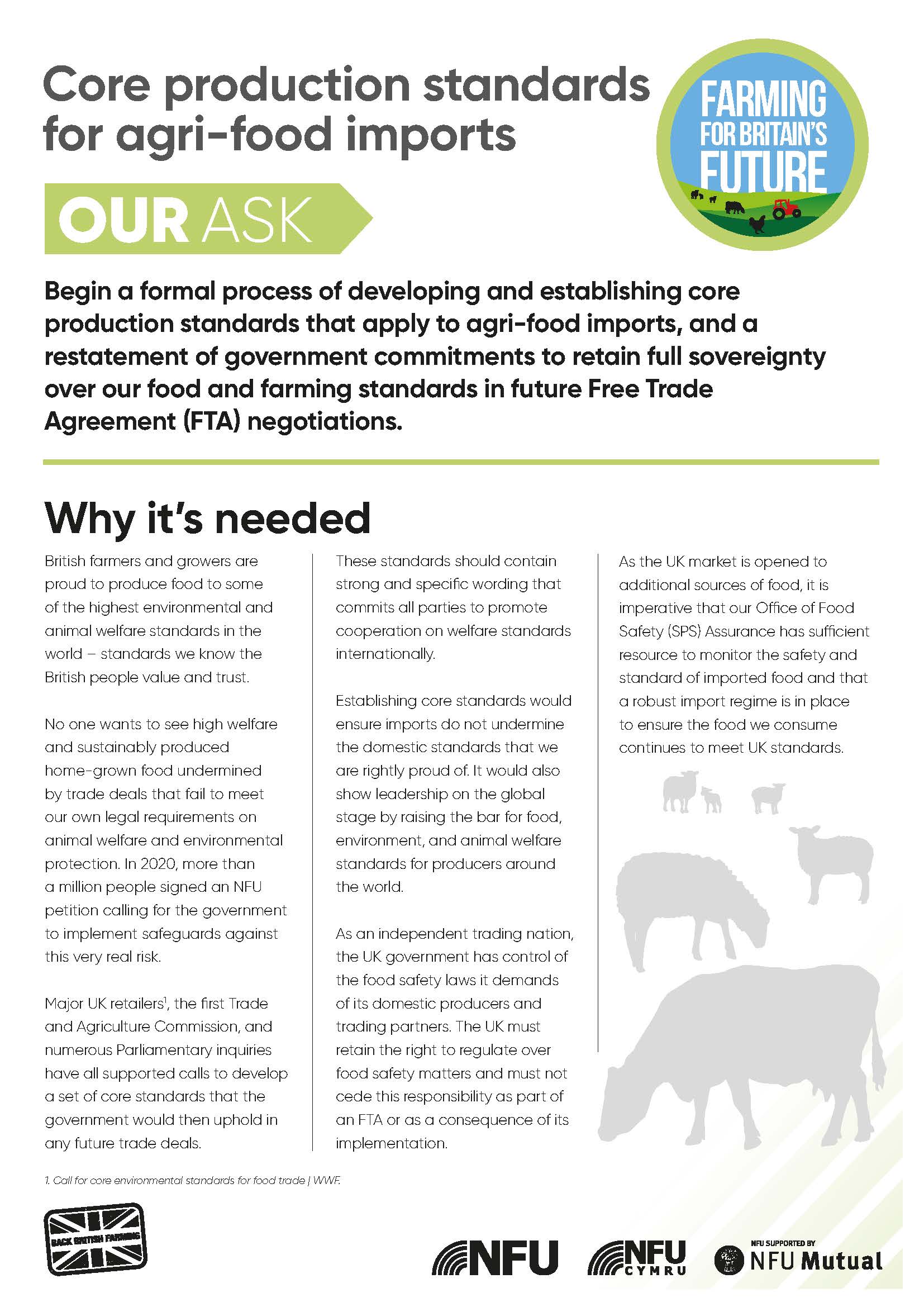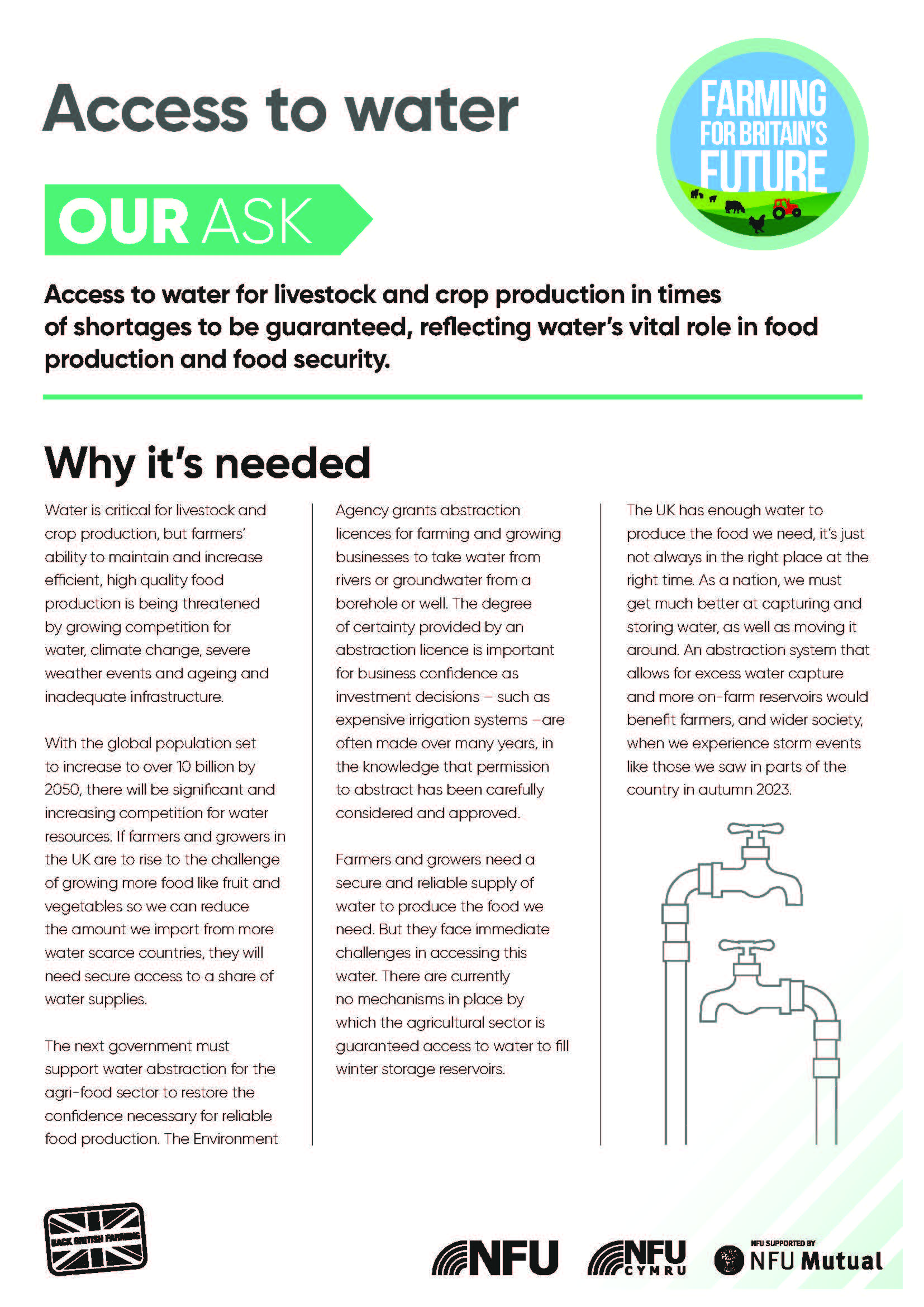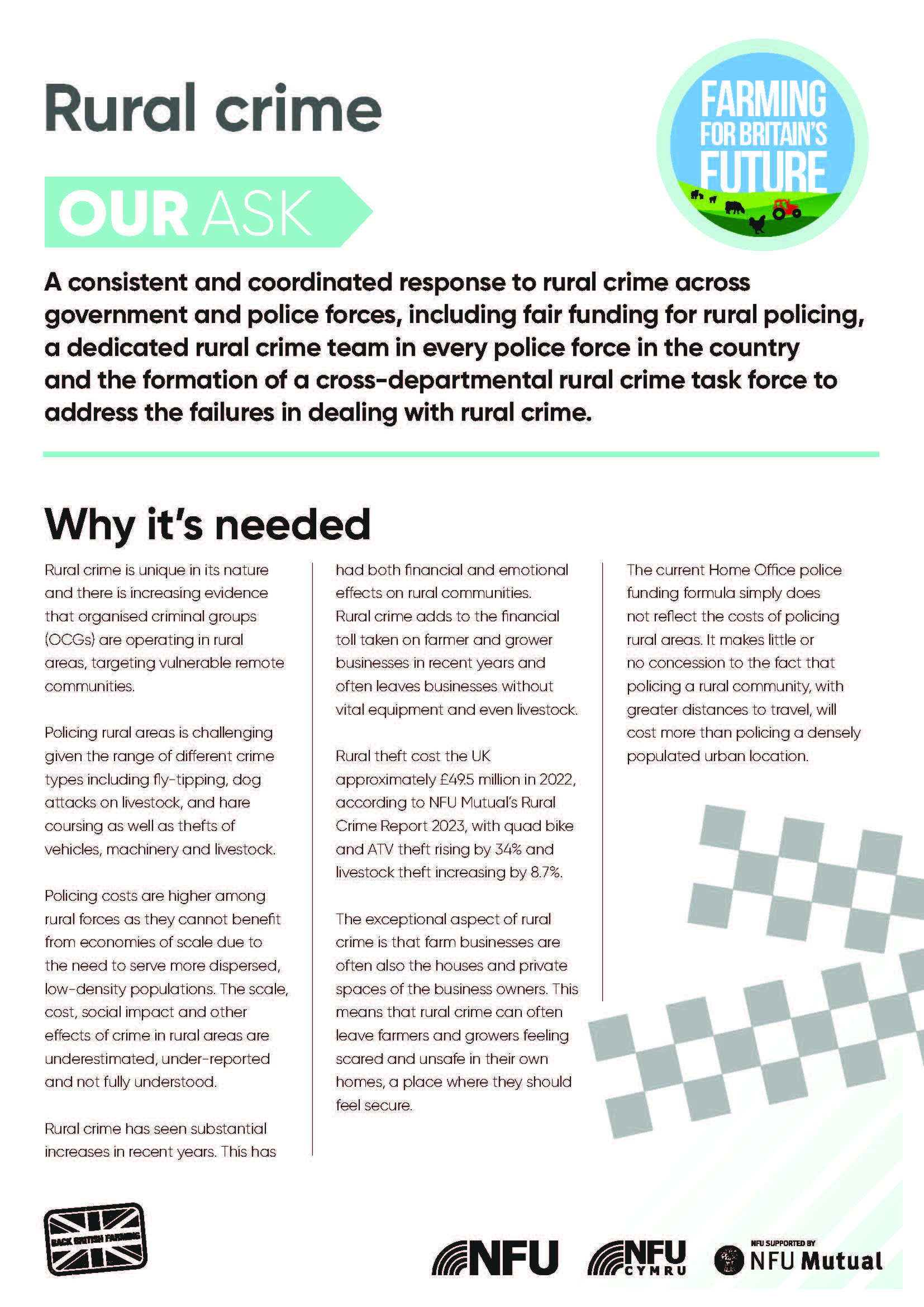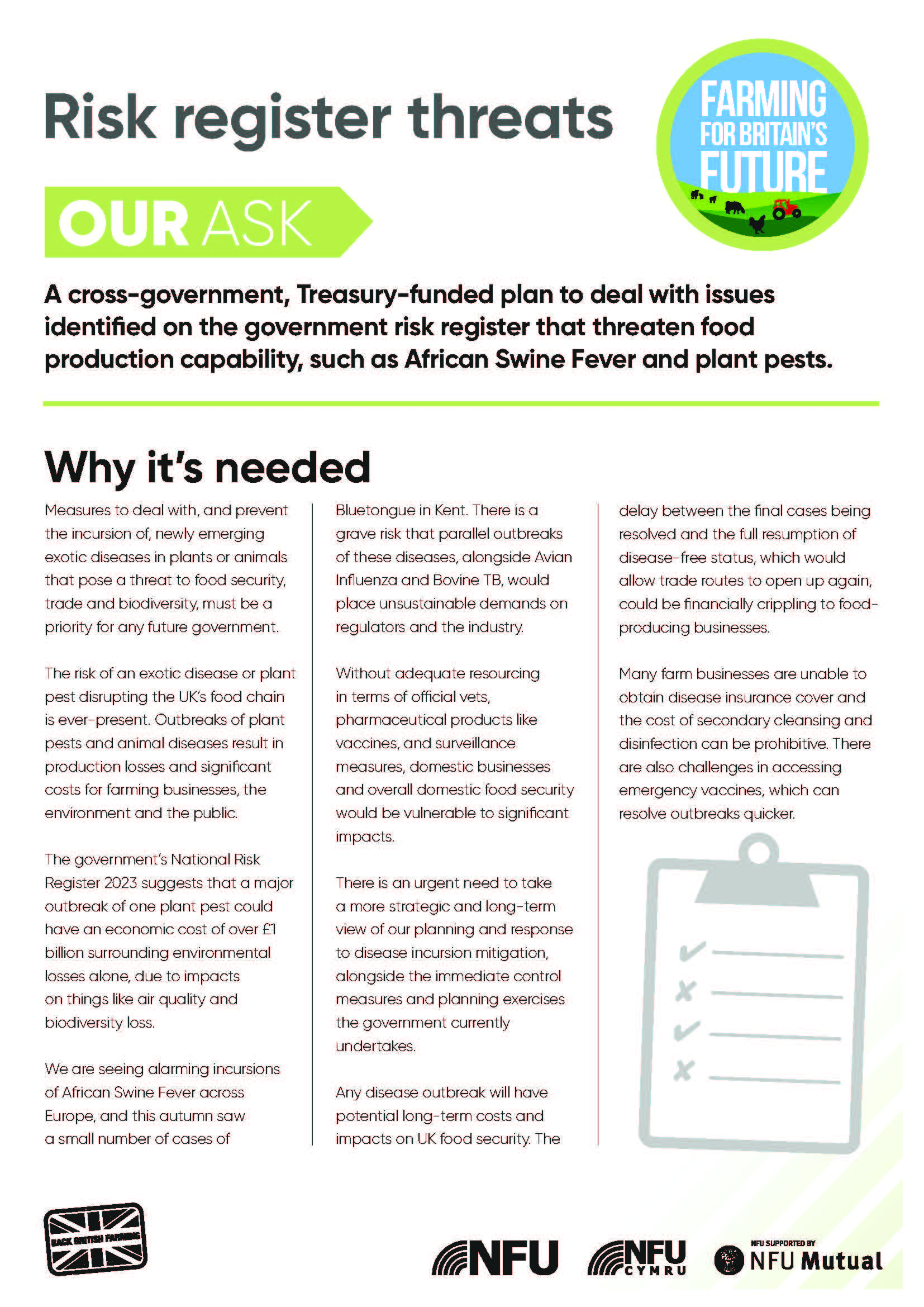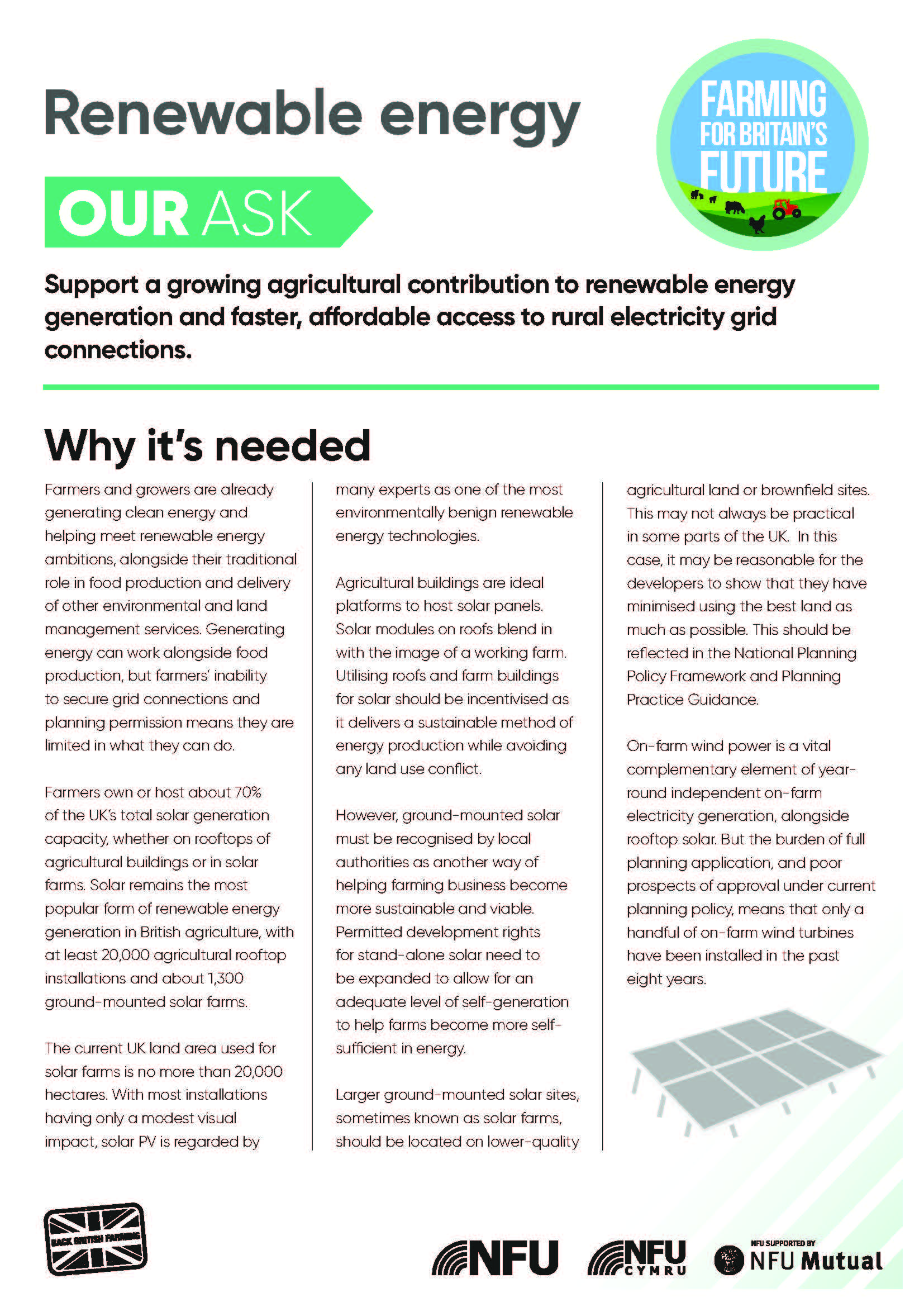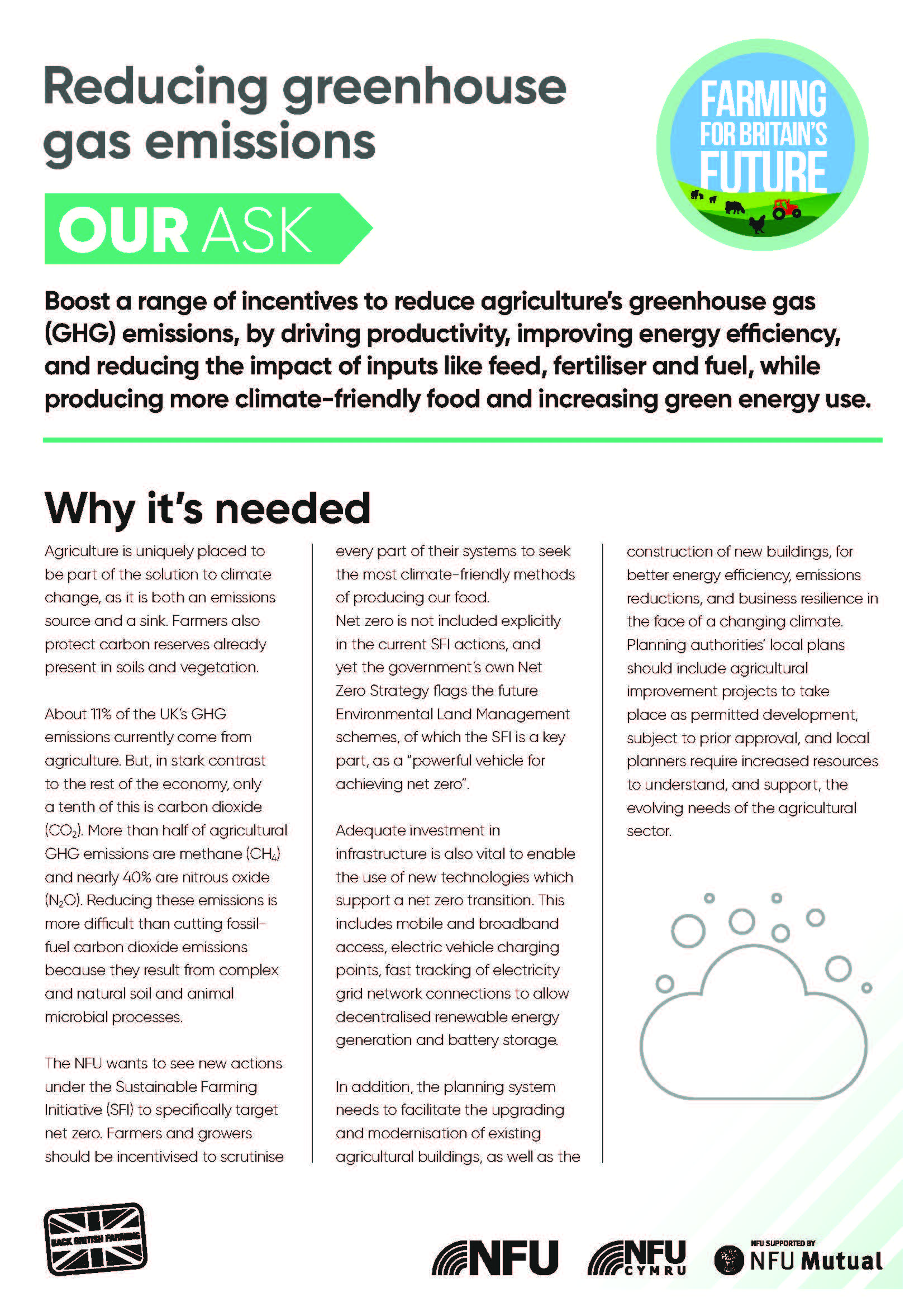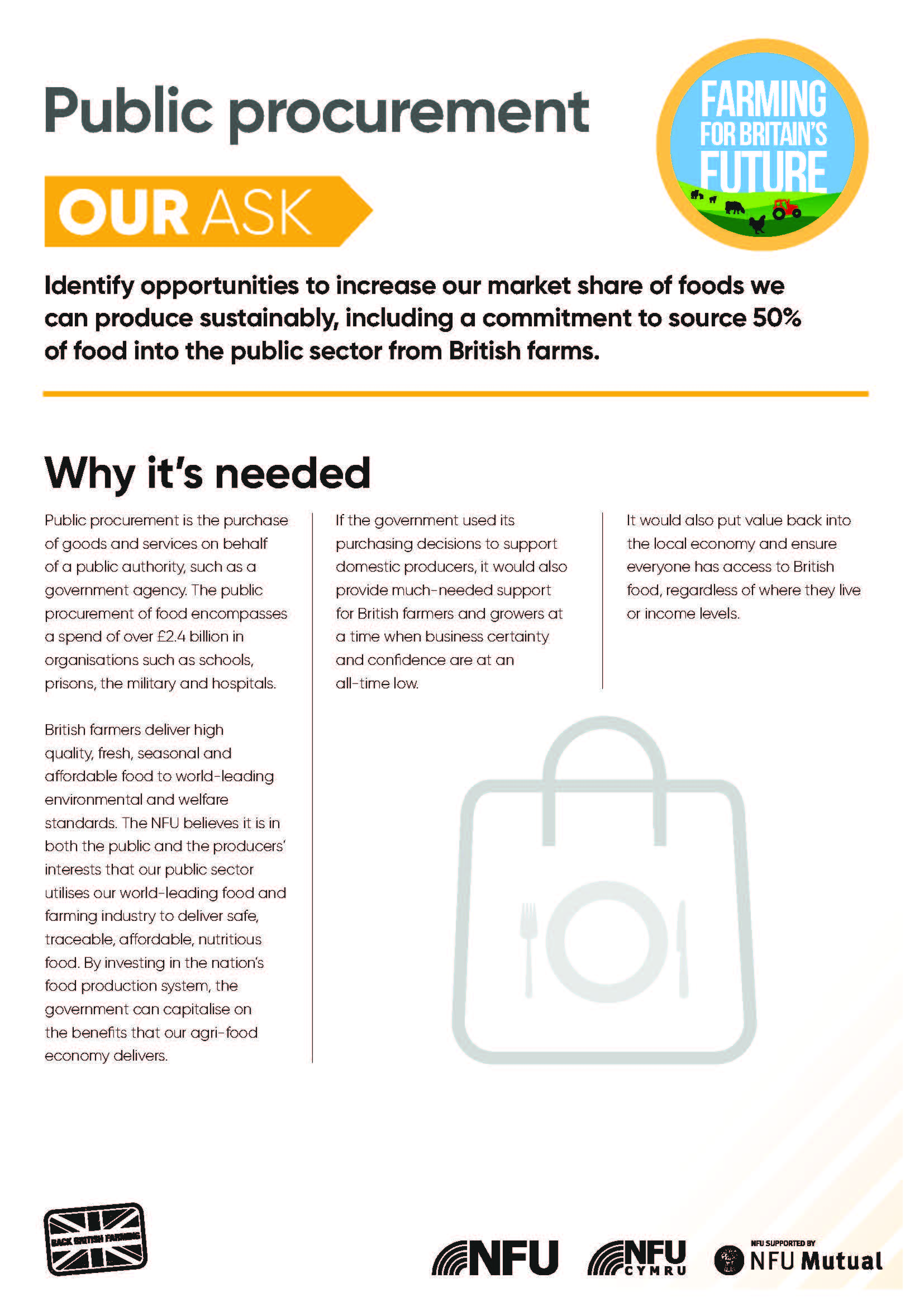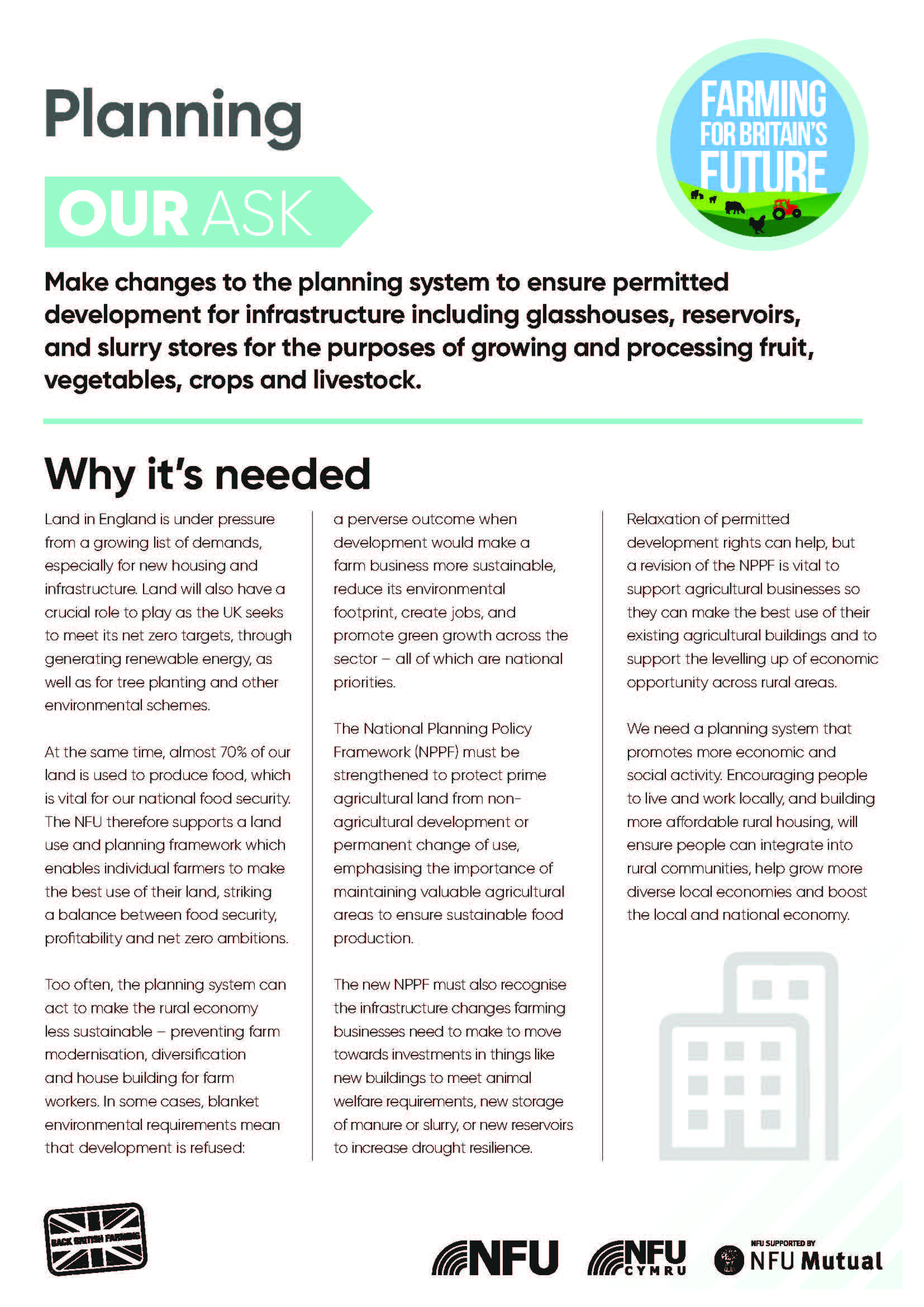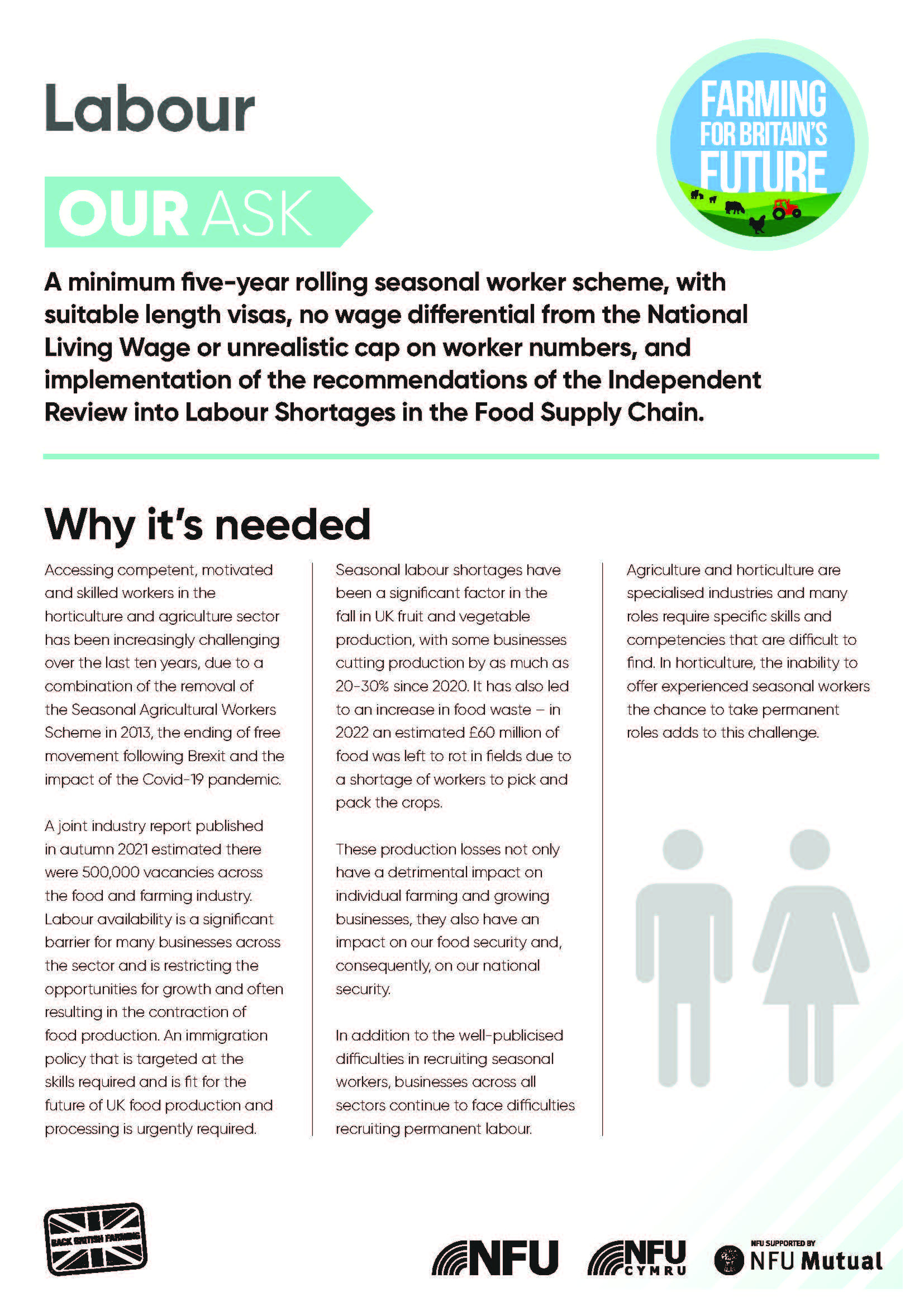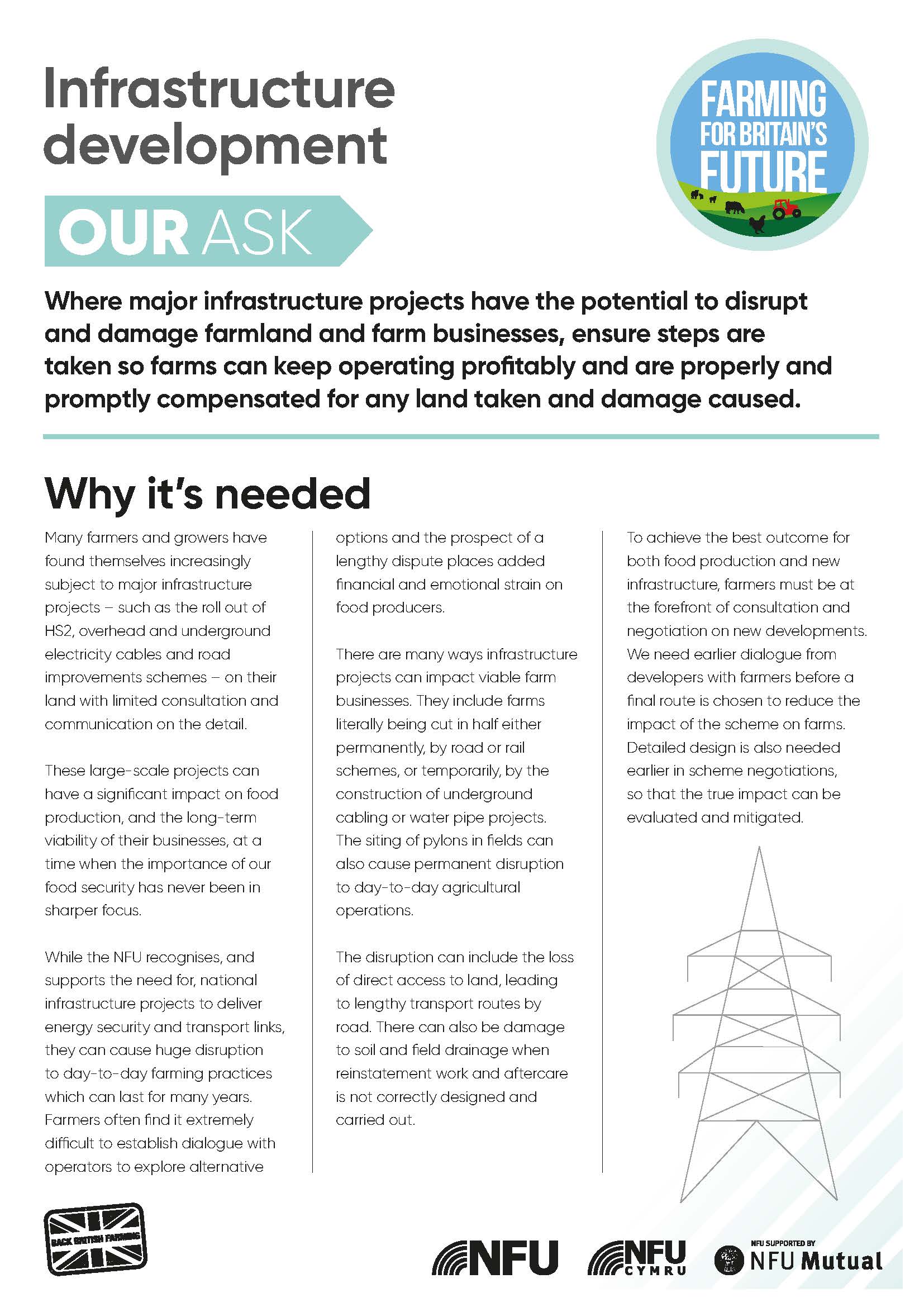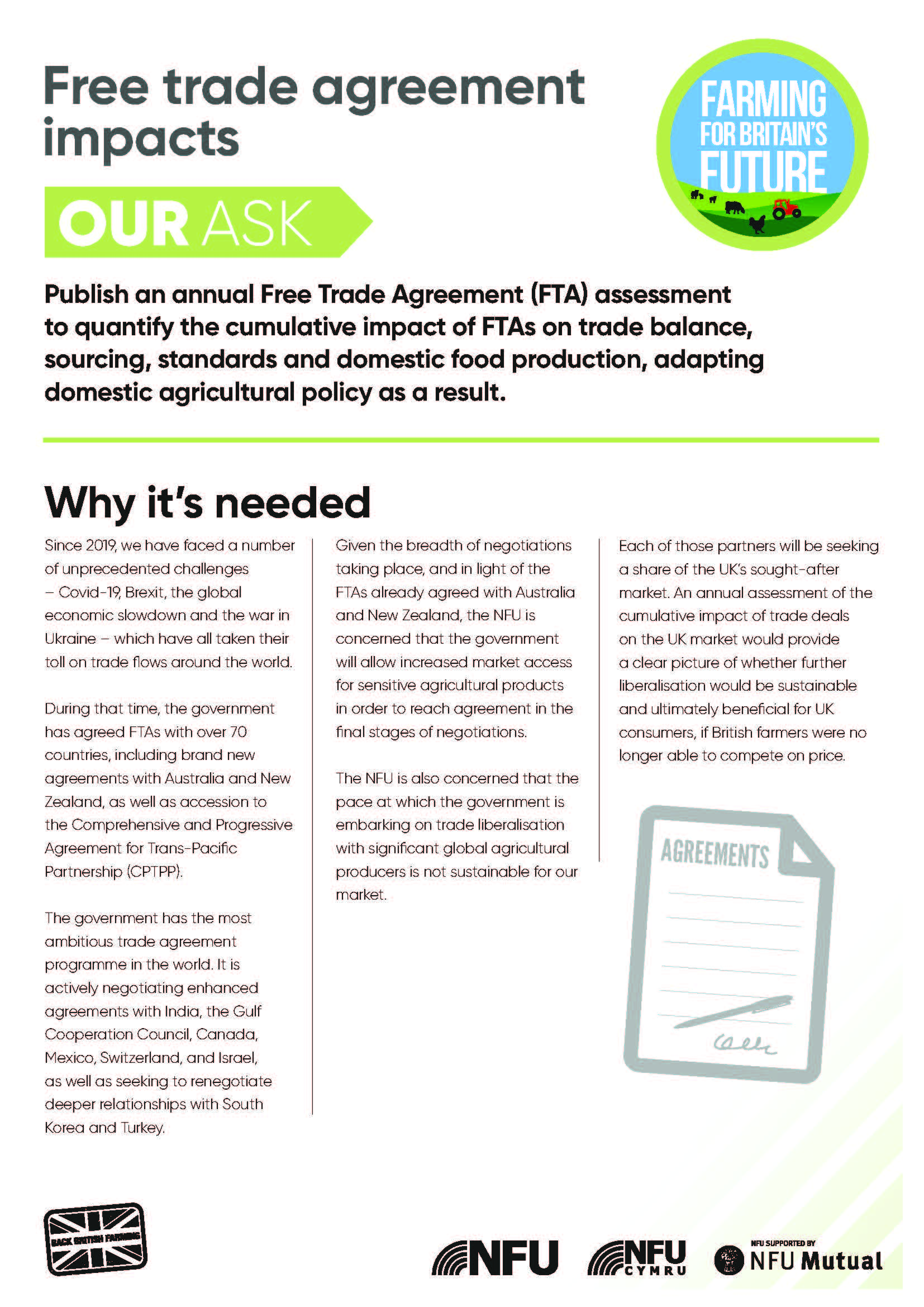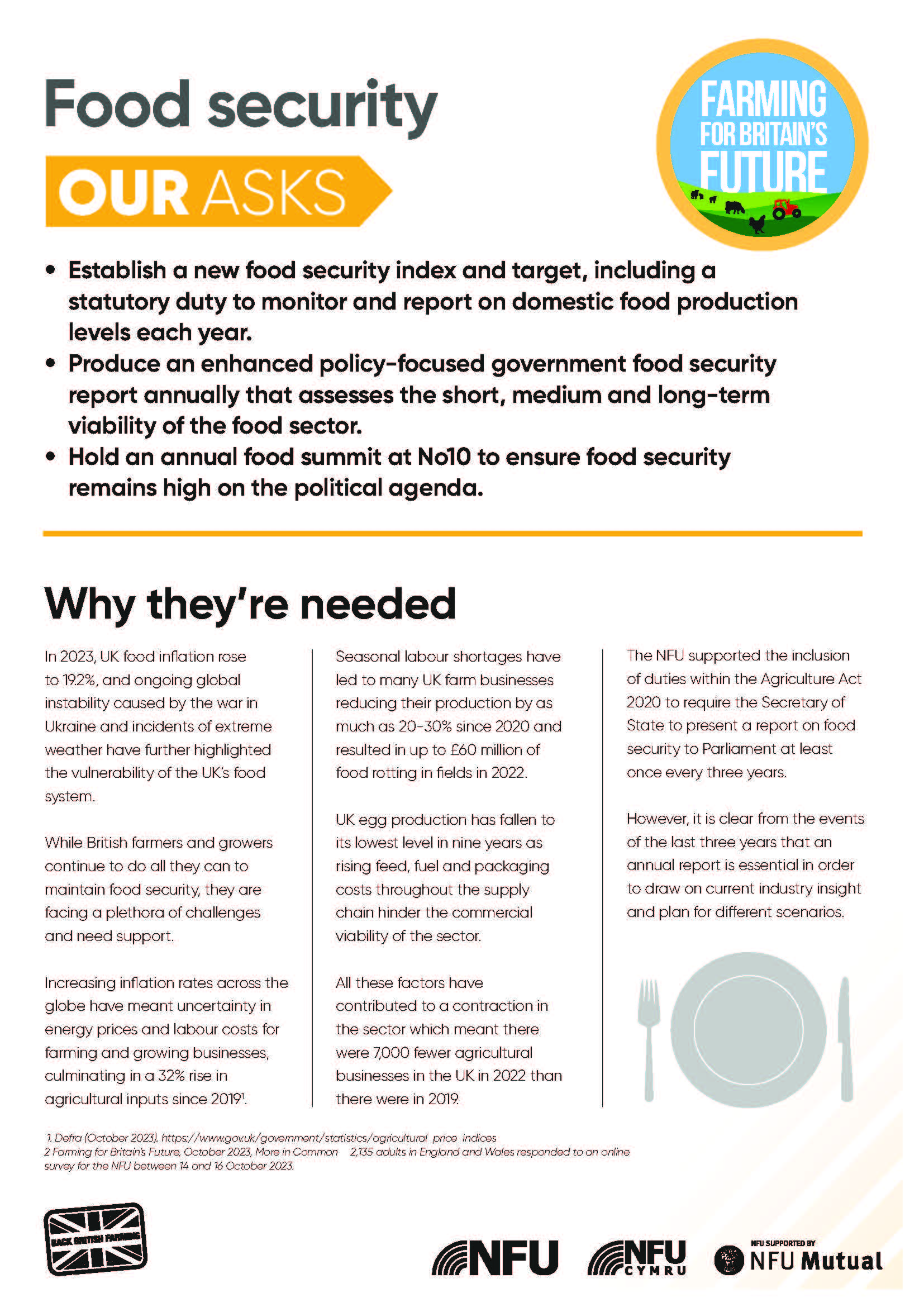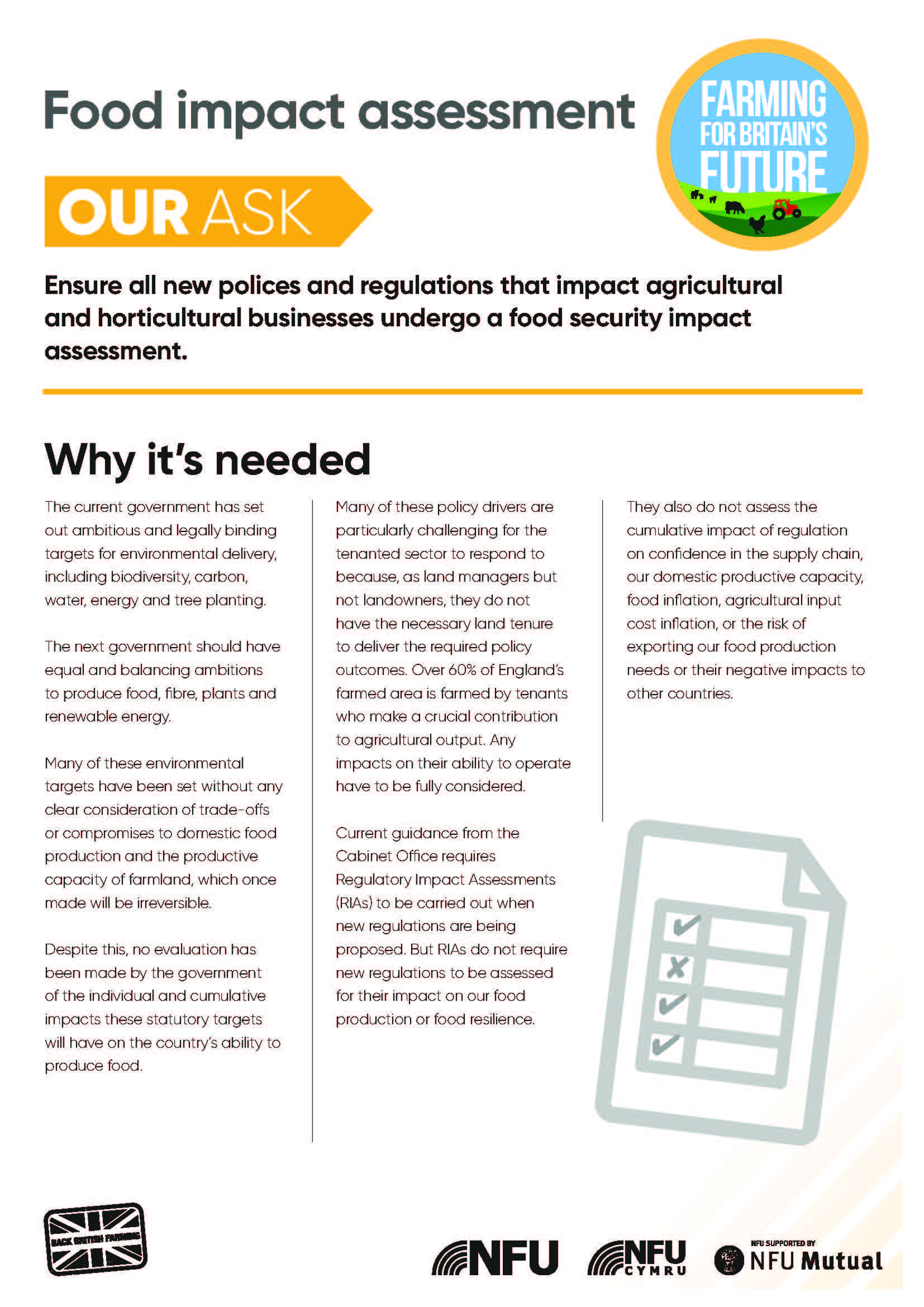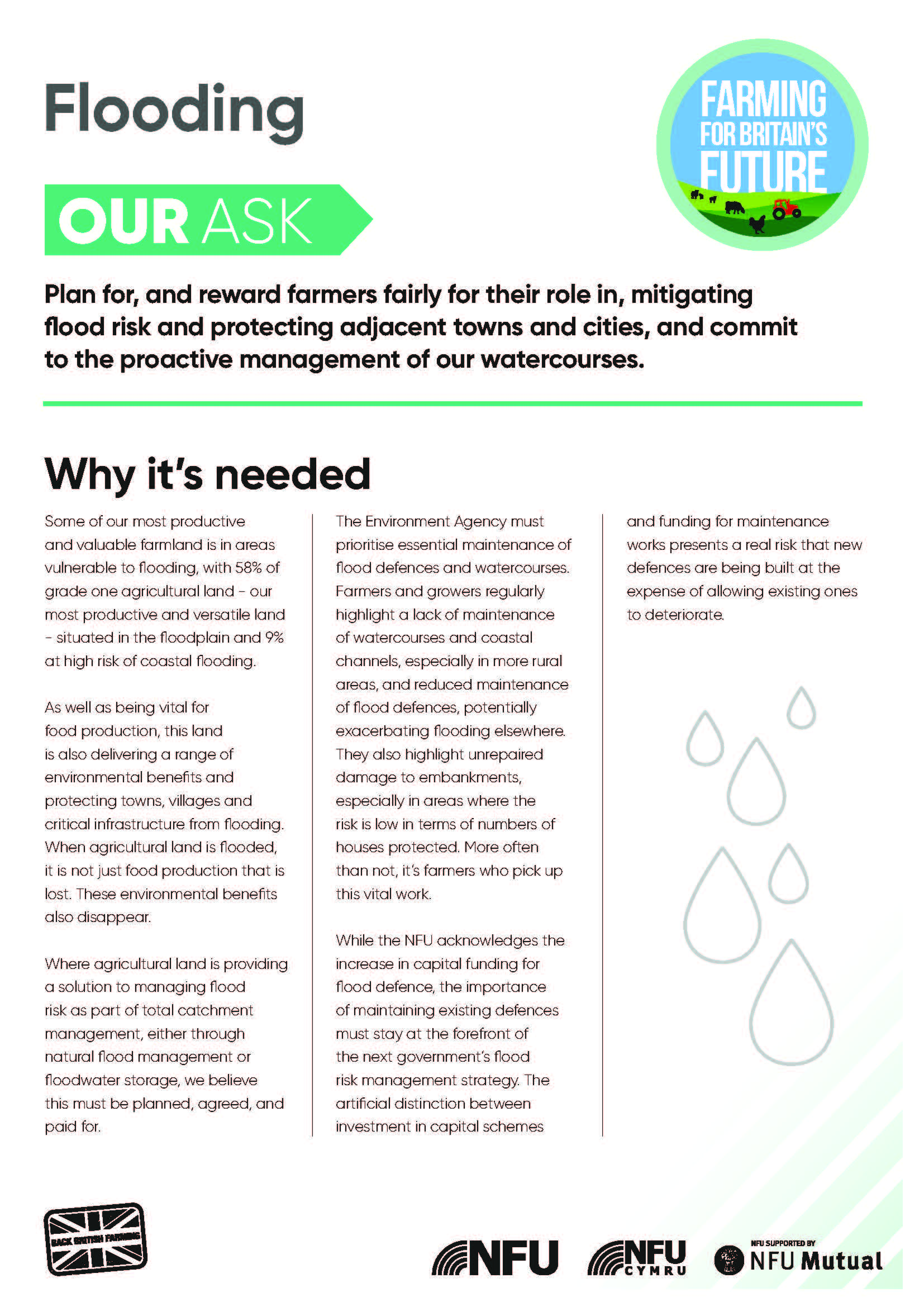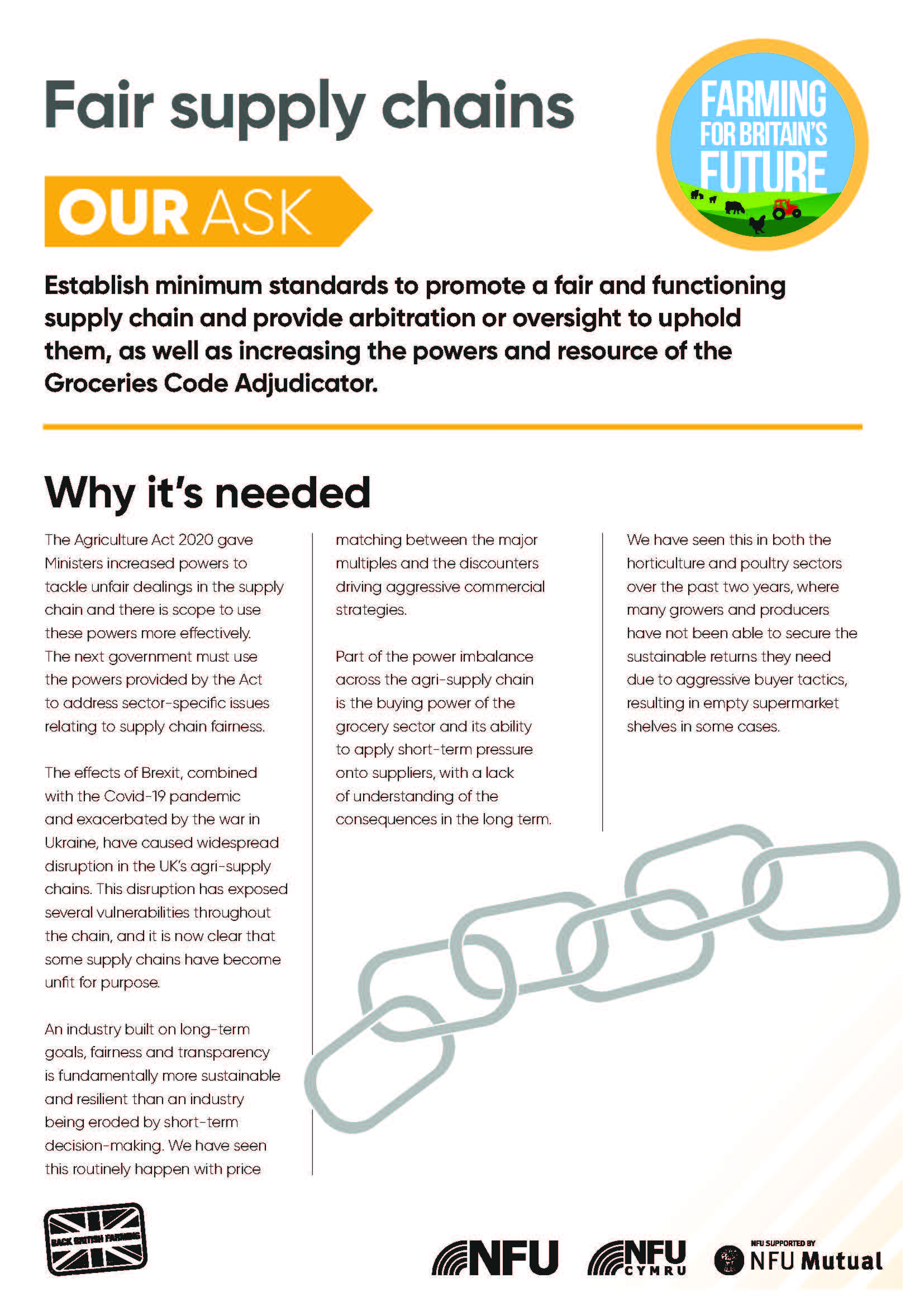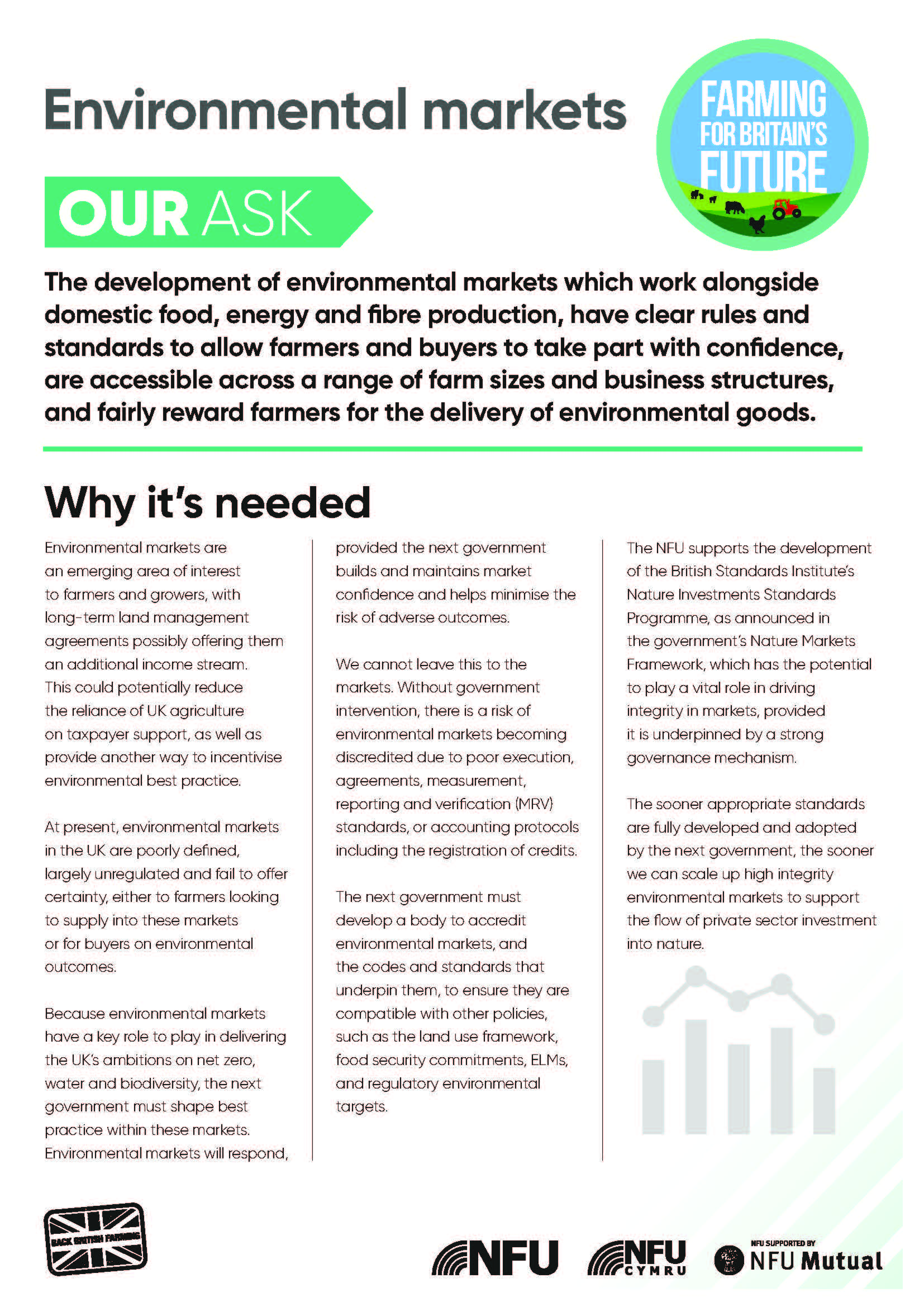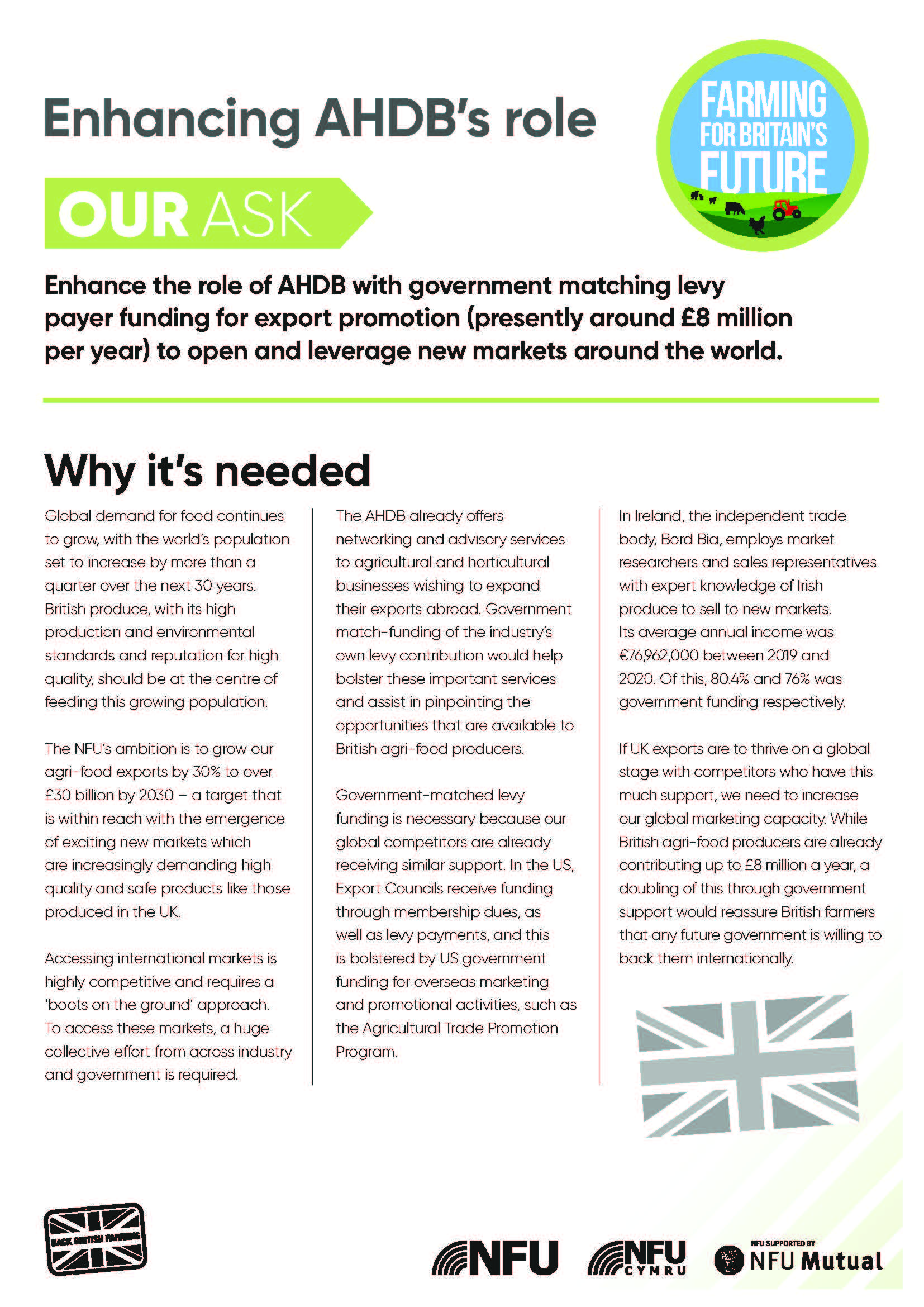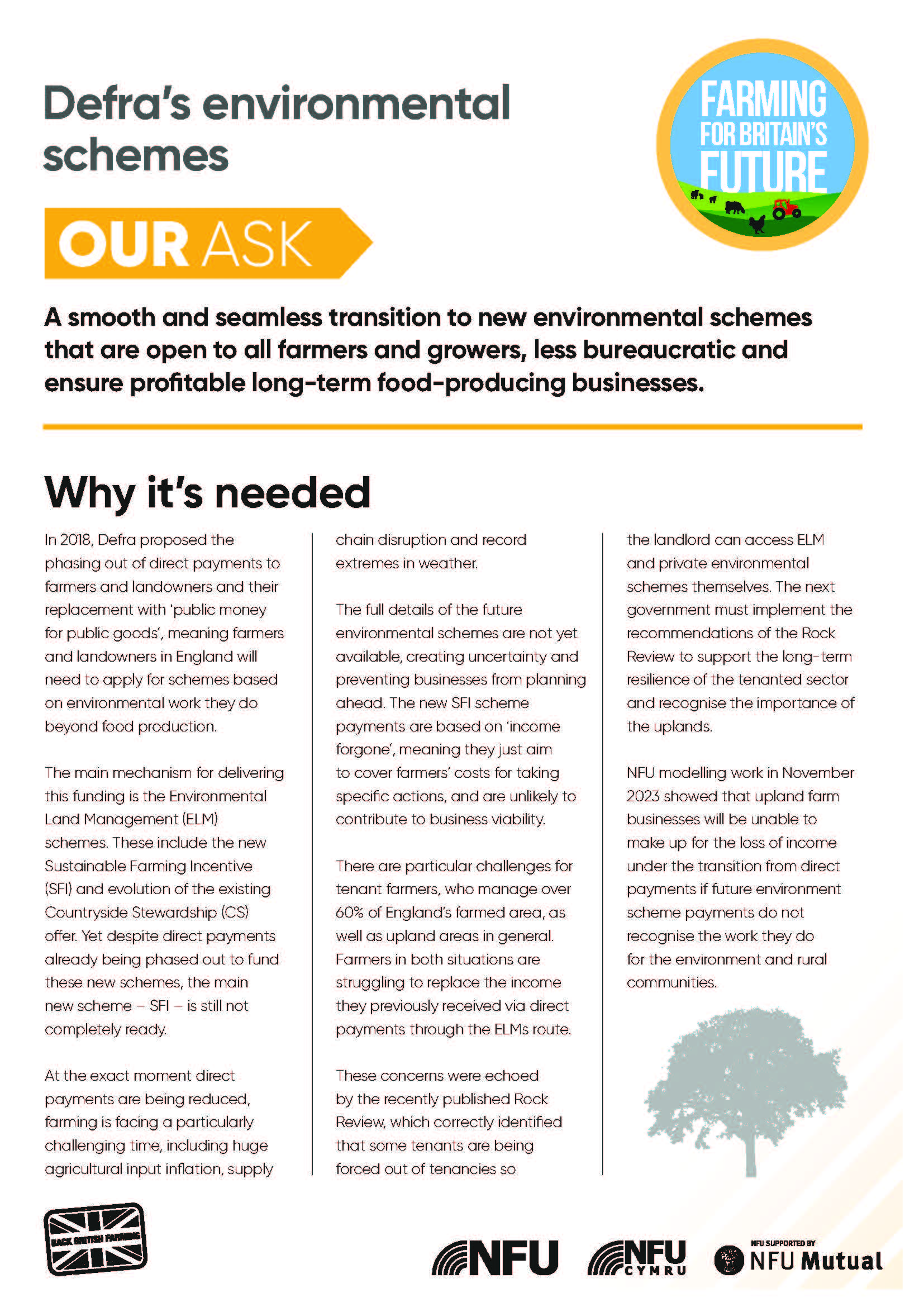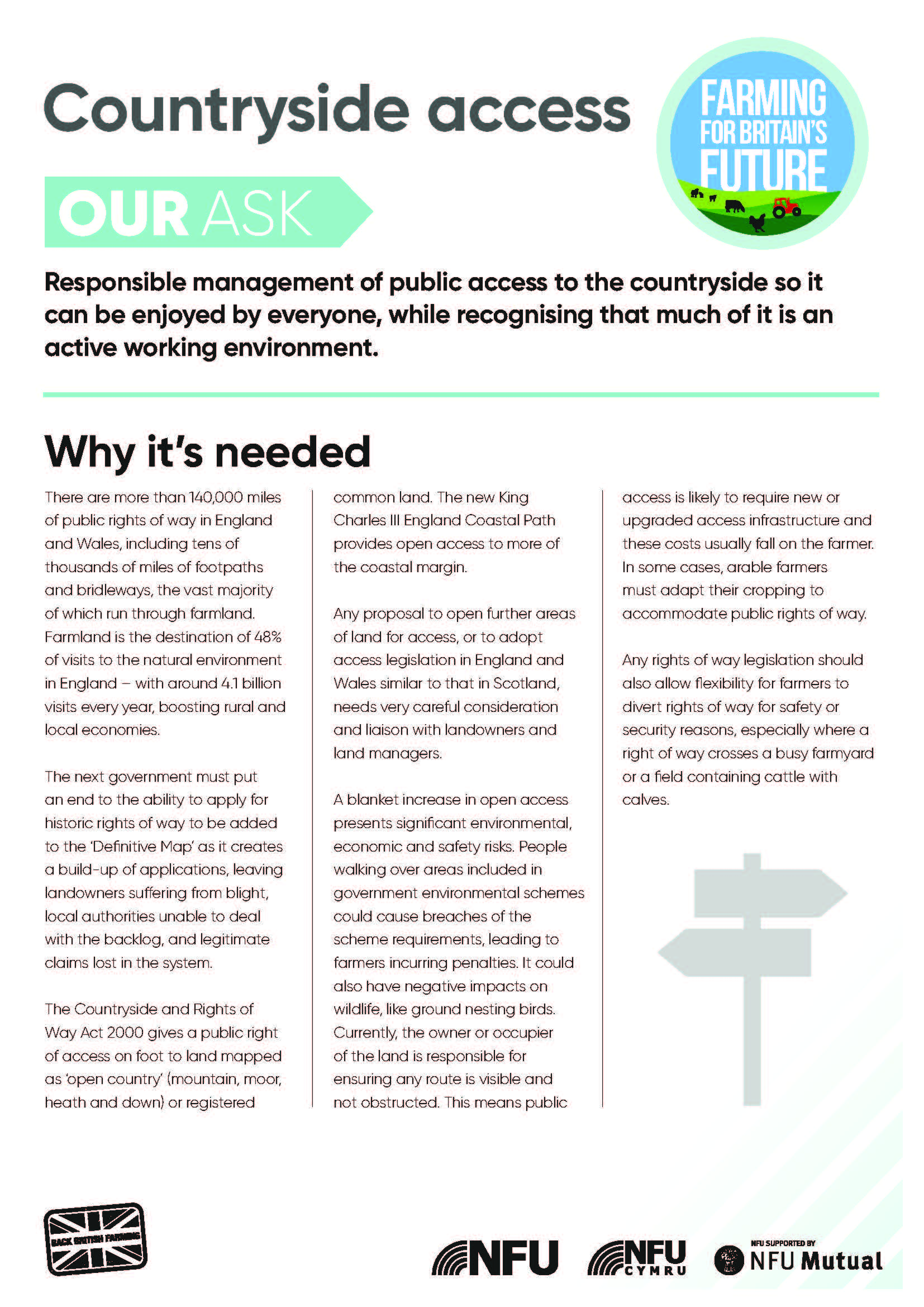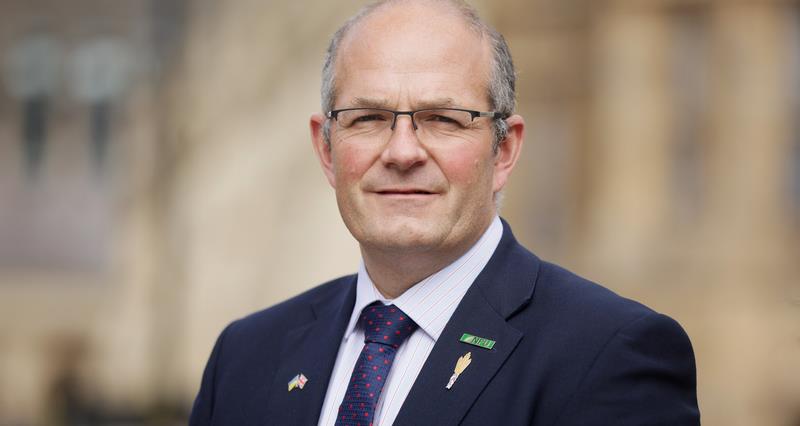Food security is national security. This was the message in the Labour party's 2024 manifesto.
And we wholly agree.
But at a time when farmer confidence is at a record new low, British farmers need government policies that deliver on the shared mission to boost food security.
UK farmers are ambitious for the future. With policies that revitalise farm business confidence, the new government can kickstart economic growth, deliver affordable climate friendly, high welfare food production, improve the environment and stimulate clean energy supply.
In turn, British farmers will continue to underpin Britain’s largest manufacturing sector, food and drink, providing jobs and stimulating growth throughout the UK.
Farming for Britain's Future
Agriculture is crucial to all of our lives because it provides the food we need to live.
And farming can help deliver on issues that matter, like food security, environmental protection and climate warming - issues that are all likely to be at the centre of the debate in the run-up to the next general election.
Food security must be a priority
The importance of our food security, and its central role in national security, has been highlighted by the unprecedented series of global events we’ve experienced in recent years.
The war in Ukraine, the Covid-19 pandemic, and increasing periods of drought and flooding both in the UK and globally have shown how susceptible our food supply is to events in other parts of the world.
Food production and food security must be given the priority they need in this country.
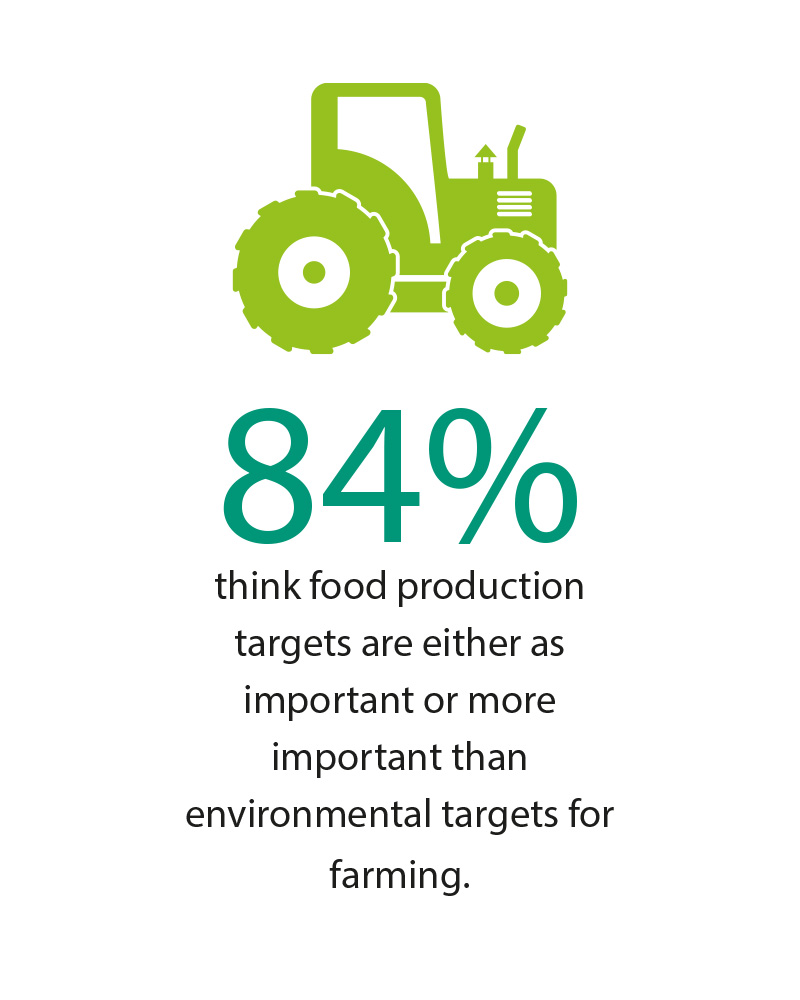
Politicians and those in power cannot continue to think that we can ignore our own food production capabilities and simply import the food we need from other countries. Put simply, farming cannot fail.
Public support
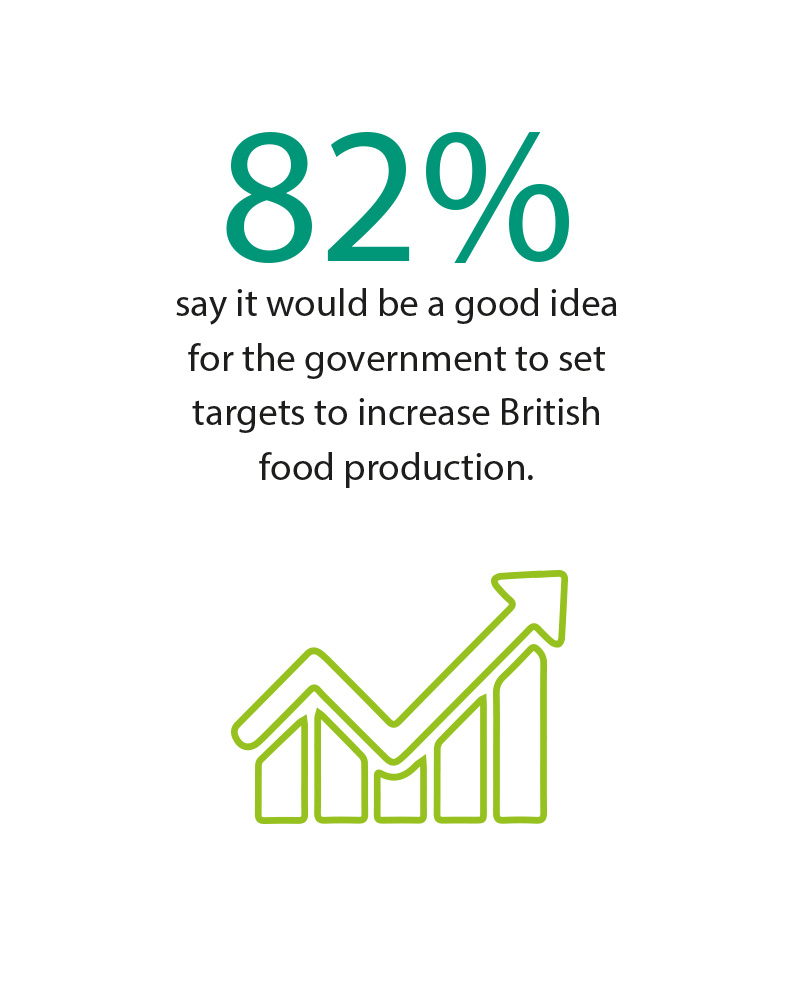
We know the public agree. Survey work carried out for the NFU by More in Common in October 2023 showed that:
- 84% of people think food production targets are either as important or more important than environmental targets for farming;
- 82% say it would be a good idea for the government to set targets to increase British food production;
- 71% say farmers don’t get enough credit for keeping food on our shelves.
When asked about a range of industries to prioritise growing in the UK, food and farming came second to only healthcare and pharmaceuticals.
What the public think
 |
66% think that the parties' plans of farming will be one of the issues that affects who they vote for at the next general election. |
 |
91% think that farmers are important to ensuring supermarket shelves are stocked with food. |
 |
66% think that a commitment to a long-term plan for food and farming will be an important factor in who they vote for at the next election. |
 |
79% think farmers have an important role to play in tackling climate change and balancing carbon emissions. |
 |
71% say that rural crime should be treated more seriously by the police. |
 |
89% say farmers have an important role to play in protecting our countryside and natural environment. |
 |
86% say farmers are very important to the future of rural communities. |
 |
66% think the government should support farmers to improve farms' role as flood defences. |
 |
75% think the creation of a SAGE (Scientific Advisory Group for Emergencies) committee for food, farming and agriculture is a good idea to help the government better plan and navigate food and farming emergencies in the UK. |
Ambition among British farmers
We have some of the most forward- thinking, productive and innovative farmers and growers working across our sector who can help the country achieve its economic and environmental aims while feeding the nation.
Farmers and growers want to produce more of the food our maritime climate enables us to excel at.
We want to fulfil our ambition to achieve net zero greenhouse gas emissions by 2040, while reducing our impact on the environment and increasing the production of green energy sources.
We want to continue to be at the heart of our rural communities by providing jobs and opportunities.
And we want the food, flowers, fibre and fuel we produce to showcase the best of British on a global stage.
Government collaboration is vital
But we can only achieve these shared aims and ambitions if government works with us.
Resilient, sustainable food producing businesses are vital for the future of the country.
The people running them need the security and confidence to be able to plan for the future and grow their businesses.
They also need fairness, not just across the supply chain but in the policies and regulations government puts in place for the people who produce the food we eat at home and abroad.
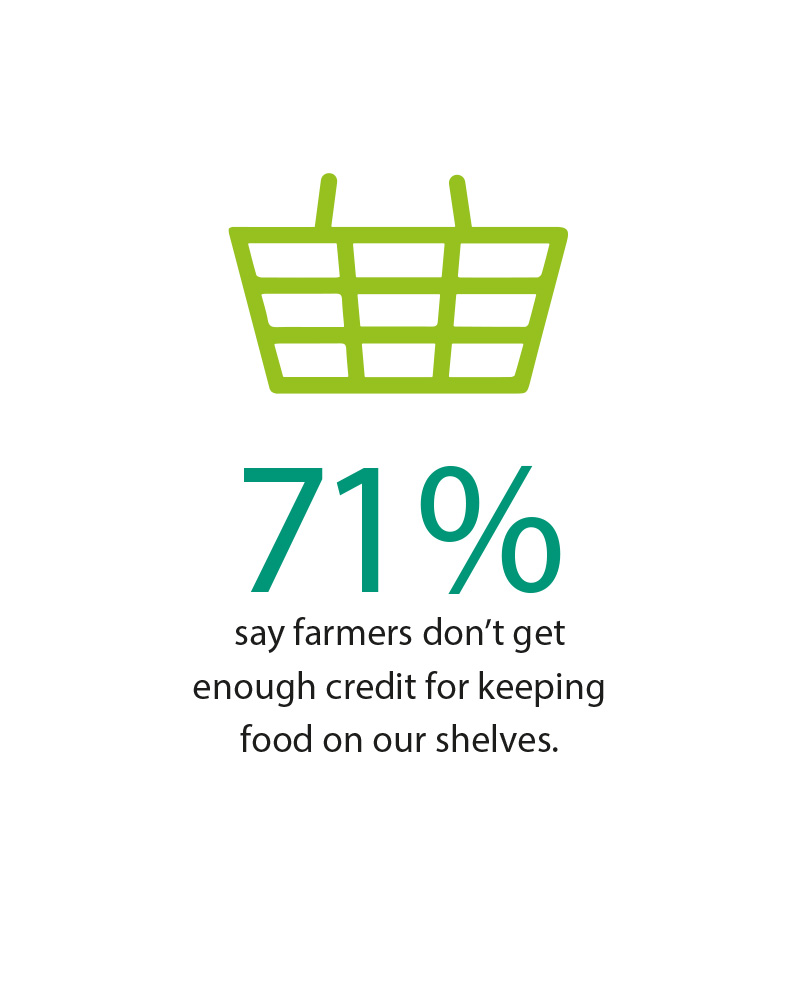
Farmers and growers need action from the next government, not just warm words.
Investing in domestic food production means we can increase our productivity, create more jobs and deliver much more for the economy and for the environment.
In other words, working with us will enable us to continue farming for Britain’s future.
British farming and the economy
- The agri-food sector's contribution to the UK economy (GVA) in 2021 was £127 billion.
- The number of people working on UK agricultural holdings in 2022 was 471,000.
- Agri-food sector jobs in 2022 were just under 4.2 million.
- The number of businesses in the UK registered as farm businesses in 2022 was 142,500.
- The percentage of farm businesses that had some form of diversification in 2021/22 was 68%.
- UK food self sufficiency is currently (2022) at 60%.
- UK food and drink exports in 2022 were £24.8 billion.
- 69% of the UK's land area is farmed.
- The amount UK shoppers spent on food and drink products in 2022 was £281 billion.
- Farmers produce renewable energy that helps to power an average of 10 million UK homes.
Agriculture in the UK 2022 (Defra, Welsh Government, Scottish Government, Daera NI)
What were our election asks?
*Farming for Britain’s Future, October 2023, More in Common – 2,135 adults in England and Wales responded to an online survey for the NFU between 14 and 16 October 2023
**Statistics from Agriculture in the UK 2022 (Defra, Welsh Government, Scottish Government, Daera NI)

